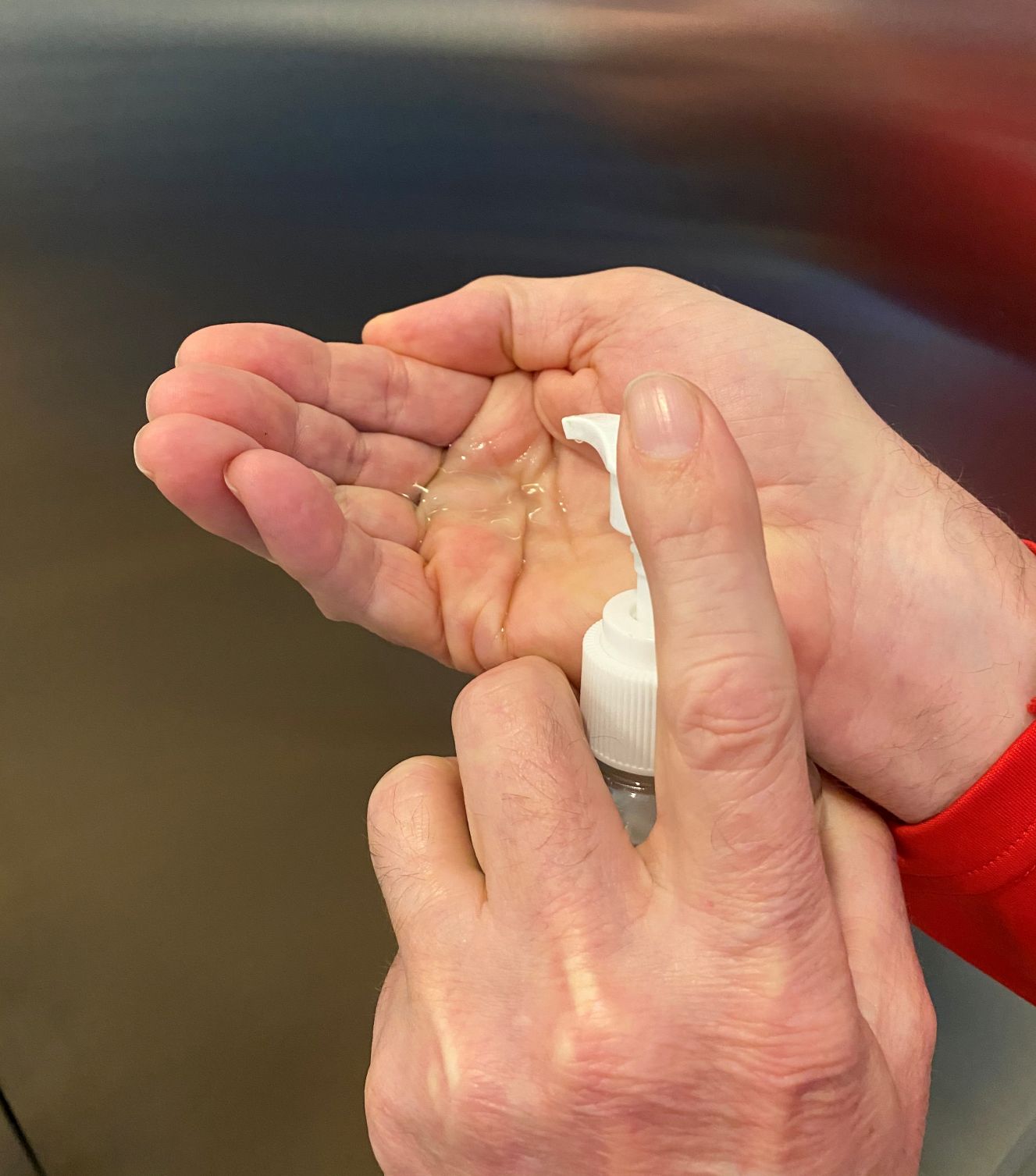Background: Rubber insulating gloves, also called VR Gloves (voltage rated gloves) or RIGS (Rubber Insulated Gloves), are critical to shock protection which is the most common fatal hazard of electrical work. They are typically made of a highly refined natural or synthetic latex rubber and are either solvent dipped or water solution dipped. The solvent dipped versions are typically the strongest and usually specified by electric utilities, but either version provides shock protection for work under NFPA 70E, NESC (ANSI C-2) and OSHA 1910.269.
Question: Can I use hand sanitizers when using VR Gloves? How can we clean them between users when we share them?
While somewhat uncommon, some companies share VR Gloves. Many companies are requiring hand sanitizers in the workplace, and many essential workers who use these gloves are trying to stay safe during the COVID-19 pandemic by using these products. So, is it safe to use hand sanitizers and how can we clean these gloves between uses? ASTM F496-20 Standard Specification for In-Service Care of Insulating Gloves and Sleeves offers guidance on cleaning and disinfecting the gloves.
ASTM F496-20 states,
“6.3 The gloves and sleeves shall be washed with a mild soap or mild detergent and water. After washing, the gloves and sleeves shall be thoroughly rinsed with water to remove all soap or detergent and dried. Mild household type chloride bleach may be used for disinfectant purposes. Soaps, detergents, and bleaches shall not be used at strengths that would attack or harm the rubber surface.
NOTE 1—The cleaning agent shall not degrade the insulating qualities of the gloves and sleeves”
So, a mild chlorine bleach solution is acceptable. We have successfully used alcohol wipes in our training classes where as many as 15 workers share the same pair of gloves. One of Honeywell’s glove experts, also a member of ASTM F18 says in his email publication entitled ADVICE FOR WASHING YOUR HONEYWELL SALISBURY PPE: INSULATING GLOVES AND SLEEVES (via e-mail ©2020 Honeywell International, Inc.):
“Regarding hand sanitizers, it is recommended to use hand sanitizers that are produced with one or more of the following alcohols: Ethanol, n-propanol, or isopropyl alcohol. These three alcohols are not harmful to the gloves or sleeves at room temperature. Hand sanitizers should include alcohol levels above 60% and should not have fragrances or scrubbing beads. Wiping gloves at room temperature with one of the three alcohols is fine as well.”
In our research on hand sanitizers, they are typically ethanol or n-propanol and usually contain an emollient such as glycerol. None of these should attack VR gloves but if gloves feel tacky, wash with warm water and a mild detergent (like a dish detergent) and allow them to dry. If the rubber is still tacky, take the glove out of service and ask for advice from your glove manufacturer.
Remember, hand sanitizers are flammable and until the alcohol is dry, you should not be near a flame or an arc flash hazard. e-Hazard does not recommend using hand sanitizer or alcohol to disinfect protector gloves, as they are made of leather and are usually not recommended to be cleaned in any way. Alcohol could render them flammable. Our testing with hydrocarbon contamination shows severe burning of leather with this type of contamination. Replace leather protectors when soiled. Try to limit contact with skin and, in case they are contaminated, wash hands after handling and, especially, before touching the face.
Another useful standard in understanding VR Gloves is ASTM F1236 – 19 Standard Guide for Visual Inspection of Electrical Protective Rubber Products
e-Hazard does not sell PPE. This information is provided as a public service during a crisis. If you find it useful, pass it on.
Have a question about electrical safety and standards?

